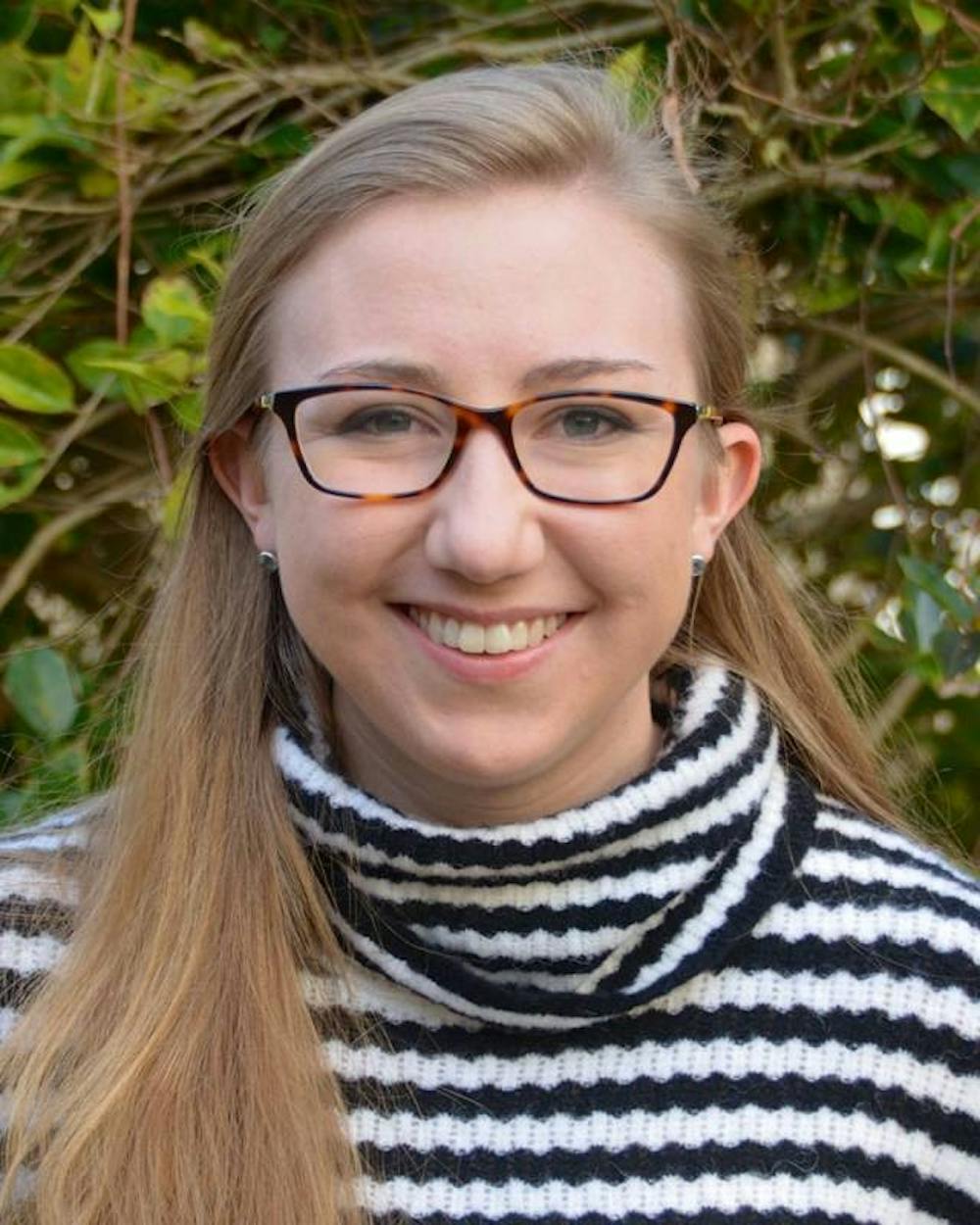Kate Reed ’19, known for her humility and love for learning, is one of four University students to receive a Rhodes Scholarship this year.
Reed concentrates in History with certificates in Latin American studies and Spanish. Though she has no family from Latin America, her interest in the region’s history, culture, and politics is profound.
“For me it started with language,” she said. “I went to a high school where Spanish was just a normal class that we took, and so I came into Princeton pretty fluent. I started to get involved in the Latin American immigrant community here.”
Throughout her time at the University, Reed has worked with immigrant populations. She helped create an ESL-adapted history class for immigrant students, and she taught at El Centro, a program that provides free English classes to adult immigrants in Trenton and Princeton. She was also president of the Princeton University Language Project (PULP), which provides free translations to non-profits, libraries, and schools.
Describing her work at El Centro as “unquestionably, the best part of my life at Princeton,” Reed says that the experience played a major role in her decision to study history. She also credits several classes and teachers at the University with inspiring her enthusiasm about Latin American studies, leading her to realize that “this is what I want to do for the rest of my life.”
Reed noted that classes such as “U.S. Imperialism in the Caribbean”— with her favorite professor, Robert Karl — and “Colonial Latin American History,” with professor Vera Candiani, were instrumental in her academic path. This year, her favorite class is called “Translation, Migration, and Culture,” taught by professor Sandra Bermann.
Robert Karl, assistant professor of history, praised Reed in an email to The Daily Princetonian. He noted that, already as a freshman, Reed “stood out as the sharpest thinker and best writer in a class of almost 50.”
“I recall sitting down at the end of the semester with the course’s two preceptors to review a sampling of final essays by each other’s students,” he said. “We did not know whose essays we were handed, but halfway through reading one of the ones in my pile, I knew from the originality of argument and clarity of writing that it had to be Kate.”

Karl added that the most substantive comment he made on Reed’s junior paper, on the Mexican writer Carlos Fuentes, was to tell her to cut two-thousand words so that it would fit the submission requirements for a peer-reviewed journal. He reports that “A Contracorriente,” a major Latin American studies journal, will publish her paper next year.
Reed’s senior thesis is about Mexico in the 1970s. She says it explores “different imaginings of development and democracy … and the promotion of a decolonial project.”
Though Mexico and other Latin American countries had been independent for over a century at the time, these countries, Reed noted, were “still allying themselves with countries that had only been decolonized in the wake of World War II.” Her research delves into the evolutionary patterns Latin American countries exhibit after colonialism.
But Reed is not only known for her intellect; several people close to her admire the kind of person she is.

“An extraordinary friend,” said Newby Parton ’18 GS of Reed, highlighting her generosity in helping him both learn Portuguese and finish his senior thesis.
Parton is a former head opinion editor for the 'Prince.'
“No matter how busy she seems to be, she always makes time to help her friends through their personal or academic trials,” Parton wrote in an email.
Chitra Kumar ’19, who has roomed with Reed all four years, wrote to the ‘Prince’ that she has never met anyone as dedicated or inspiring. She recalled that Reed would spend time with ESL students outside of the scheduled class time and that she would make study guides for the students she tutored.
“[S]he's the kind of person who'll be there for you if you're having a rough day, even if she's stressed out about her own work,” Kumar wrote. “Words can't begin to describe how proud I am of her.”
Karl also spoke to Reed’s character, emphasizing that she is “empathetic, careful, [and] dedicated to those around her.”
He noted that, after finishing her junior paper draft, Reed offered critical feedback for the essays “of every other member of the class.” He added, “Having her as a student has been one of the great privileges of my time at Princeton.”
The oldest of four, Reed enjoys running, baking, reading, and going on hikes with her family. She’s a fan of chocolate chip cookies and lasagna, and loves the thought of falling asleep “lying on the couch with a huge novel and a cup of tea.”
Still digesting the news that she’s a Rhodes Scholar, she plans to cherish her free time “hanging out friends and watching movies” before leaving for Oxford.
Reed plans to study at Oxford for two years and pursue the Masters of Philosophy in Development Studies. This, she said, looks at the economics, politics, and history of underdeveloped or developing regions, investigating “how we conceptualize that line between developed and underdeveloped.”
Intending to pursue a Ph.D. in modern Latin American history, Reed hopes to be an educator and historian.








